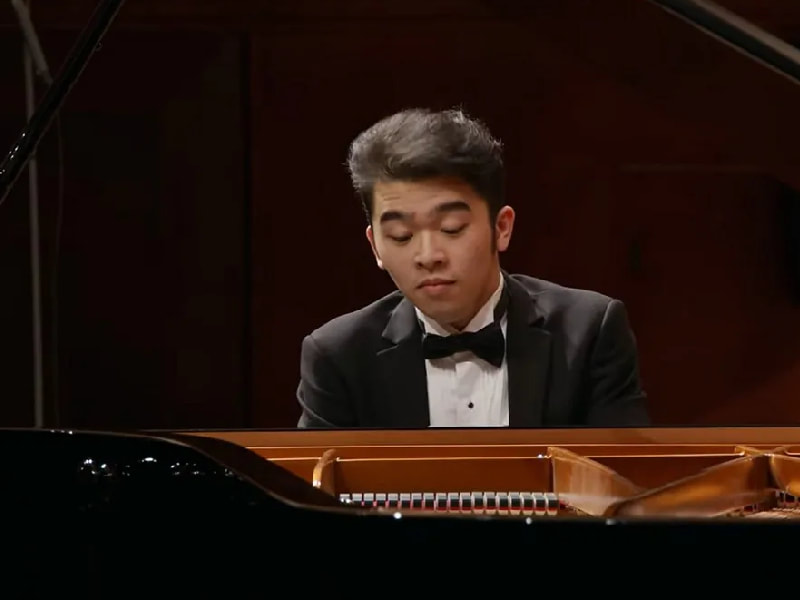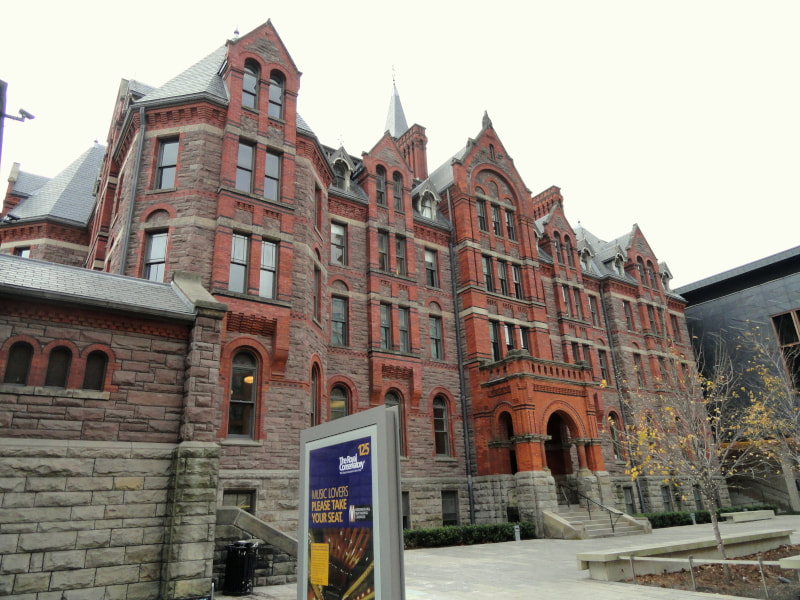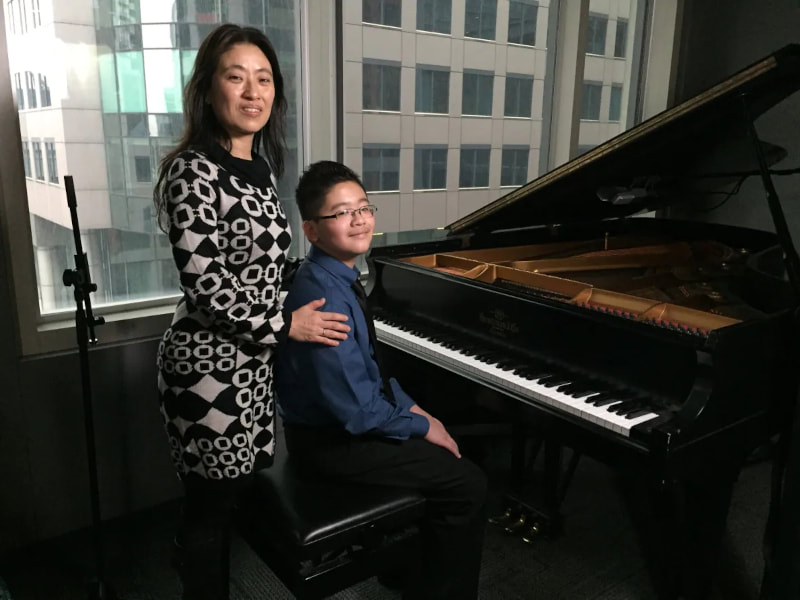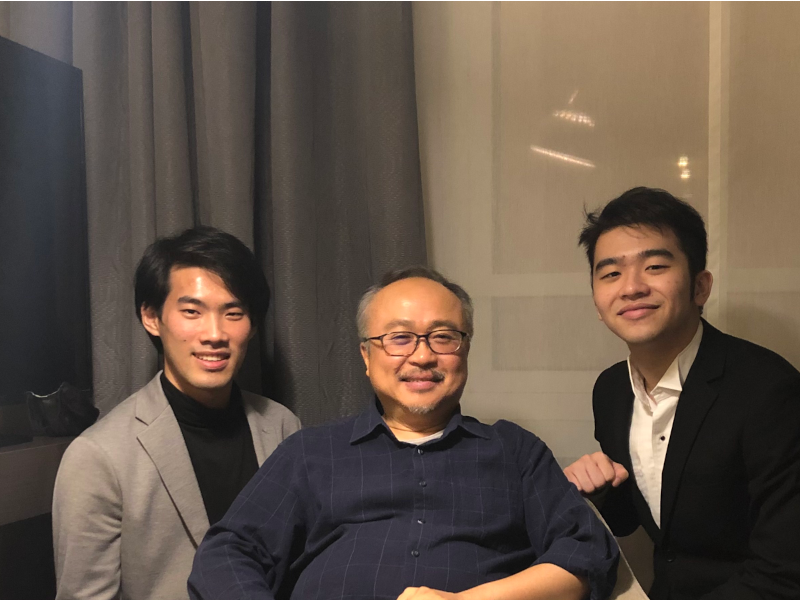|
By Minh Nguyen It was the final round in the prestigious 18th Chopin Competition, held in The National Philharmonic in Warsaw, Poland in October, this year. JJ Jun Li Bui (17), half-Vietnamese half-Chinese, seated by the piano – appeared calm and composed in a black suit. The orchestra around him played Frederic Chopin’s Concerto in E minor, Op. 11. Five minutes later, Bui joined in; synchronizing with the music. His fingers galloped and rippled with the modulation. He sat straight, body swaying; head leaning back and forth, closing his eyes and letting the music wash him over. © YouTube/ Chopin Institute The young pianist had a secret; he struck a balance between the heart and the mind. JJ Jun Li Bui, born in Toronto (2004), started playing piano at five. “At first, piano was just like any other interest,” said Sonia Wang, Bui’s mother. Then she realized “he learned it very fast,” when he won first place in a school competition at his seventh birthday. “If you use too much mind, the music will be boring. But if you put in too much heart, you will lose control.” – JJ Jun Li Bui. The 18th Chopin Competition is not only the most important competition for Bui, but also the culmination of his technical and emotional development. At the age of 11, he was enrolled at The Phil and Eli Taylor Performance Academy for Young Artists at The Royal Conservatory of Music - a prestigious music academy in Toronto - and studied under Israeli-Canadian pianist Micheal Berkovsky. A Julliard-trained soloist and teacher, Berkovsky met Bui before at a concert when he was nine. “He had the maturity of a 15-year-old and the patience of a 60-year-old. He could repeat something a thousand times until it works.” – Micheal Berkovsky, Bui’s teacher. For Bui, Berkovsky’s young age made him more relatable. “[Our relationship] is more like a friendship.” “If I want to influence a student,” said Berkovsky, “I have to give a bit of inspiration as a role model, or to connect with them personally. That’s why it’s good to break formalities sometimes.” What is hard to break is Bui’s concentration in his performance - “it didn’t matter if there was a tornado outside,” added Berkovsky. In the 2019 Cliburn Junior Competition in Dallas, Texas, a competition for pianists in the 13 – 17-year-old age range, Bui won the Peer award for nailing Chopin’s Ballade No. 4 in F Minor, Op. 52. This piece is “terrifyingly difficult,” said Peter Dugan, host of NPR’s From The Top, a podcast dedicated at discovering young music talents. The highlight is the exhilarating coda, preceded by a lull; “the calm before the storm,” as quoted by Dugan. “It feels almost like after a war, with bombs and everything,” said Bui, 14 at that time. “I feel like for [a] moment everything is silent; it’s not a comfortable silence, it’s like a deadly silence, and then the coda comes in and it’s like an explosion, a torment, and you just go for it.” This performance is just another win in Bui’s impressive résumé; he has performed around the world, either in solo performances or with orchestras. “Before, I would just let my fingers run wild,” says Bui. He learned how to use his mind from Dang Thai Son, a world-renowned Vietnamese Canadian pianist, who he met in Montreal in 2016 after being chosen as the winner for CBC Radio’s Piano Hero program. Dang then became Bui’s private teacher at Oberlin College and Conservatory in Ohio, where Bui is currently in his second year. “He’s the most amazing teacher you can have,” said Bui. “The most valuable lesson I’ve learned from him is to always try to improve yourself.” All this development leads up to the Chopin Competition, which began in 1927 and now held by the Fryderyk Chopin Institute. Twenty-four-year-old Toronto-based Bruce Xiaoyu Liu, also an Oberlin alumnus, won 1st place. “What stood out to me was that so many young people handled pressure like nothing,” said Berkovsky. Against the steep competition, Bui confesses he still struggles with stress, but he thinks “it will come.” Peer pressure is also a concern; “since there are a lot of good teachers, there are a lot of good students, too,” said Bui. “But now that I’ve got somewhere, I deal with it better now.” Bui knitted his brows and shredded the keys, surfing the piece to its climax. And when the conductor flicked his wand, the timpani thumped, the violins weaved, the audience gave a standing ovation. “If you love music, the most important thing is to not play for fame or money.” – JJ Jun Li Bui
|
Recent PostsCategories
All
Archives
December 2021
|
|
GET THE APP!
Listen to VIBE 105 anywhere you go!
|
OUR STATION
|
TUNE IN RADIO
|
STAY CONNECTED
|
Copyright © 2021 Canadian Centre for Civic Media and Arts Development Inc. Except where otherwise noted, presentation of content on this site is protected by copyright law and redistribution without consent or written permission of the sponsor is strictly prohibited.








